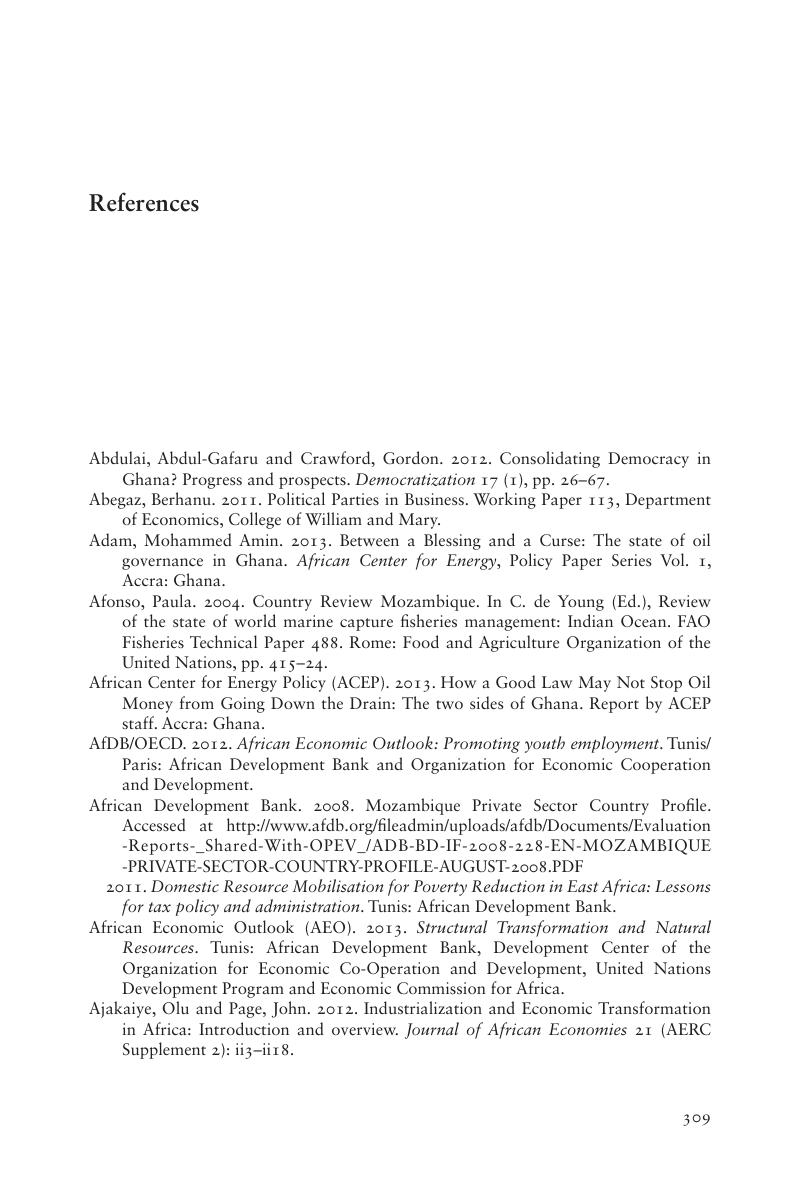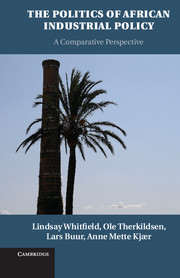Book contents
- The Politics of African Industrial Policy
- The Politics of African Industrial Policy
- Copyright page
- Contents
- Figures and Tables
- Book part
- 1 The Puzzle of Limited Economic Transformation in Africa
- Part I Rethinking the Political Economy of Development
- Part II Evolution of Political Settlements
- Part III African Experiences with Industrial Policy
- References
- Index
- References
References
Published online by Cambridge University Press: 05 July 2015
- The Politics of African Industrial Policy
- The Politics of African Industrial Policy
- Copyright page
- Contents
- Figures and Tables
- Book part
- 1 The Puzzle of Limited Economic Transformation in Africa
- Part I Rethinking the Political Economy of Development
- Part II Evolution of Political Settlements
- Part III African Experiences with Industrial Policy
- References
- Index
- References
Summary

- Type
- Chapter
- Information
- The Politics of African Industrial PolicyA Comparative Perspective, pp. 309 - 336Publisher: Cambridge University PressPrint publication year: 2015



